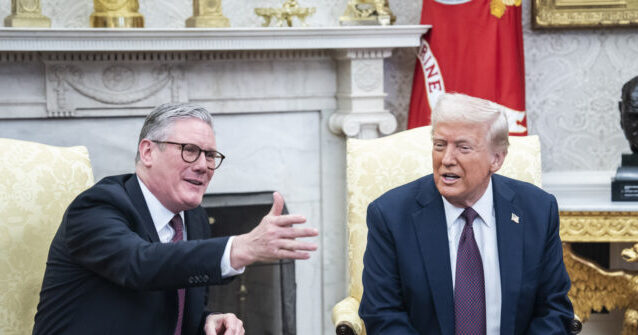When Barack Obama visited London in 2016, he delivered a stark warning to British voters considering Brexit: if the United Kingdom left the European Union, it would go “to the back of the queue” for trade deals with the United States.
“And on that matter, for example, I think it’s fair to say that maybe some point down the line there might be a UK-US trade agreement, but it’s not going to happen any time soon because our focus is in negotiating with a big bloc, the European Union, to get a trade agreement done,” Obama said. “The UK is going to be in the back of the queue.”
Nine years later, it is clear just how wrong he was.
The U.K. voted to leave the E.U. in 2016, although formally exiting the trade protectionist union took several more years. And now the U.K. has shown up at the front of the queue for U.S. trade deals.
On Wednesday, President Donald Trump announced a breakthrough trade deal with the United Kingdom—the first major bilateral trade agreement of his second term and the centerpiece of his post-globalism economic strategy. Far from being isolated, the UK is now at the very front of the line.
This deal would have been impossible had Britain remained shackled to the European Union’s common commercial policy, which prohibits individual member states from negotiating their own trade agreements. Brexit gave London the freedom to strike its own terms—and Washington was ready.
The Trump administration tried to arrange a trade deal during Trump’s first term as president but the British government held back, in part because many Conservatives who controlled Parliament at the time were opposed to or only reluctant supporters of Brexit.
The agreement cuts non-tariff barriers on U.S. agricultural exports, reduces duties on British auto and aerospace products, and deepens alignment on critical technology and supply chain security. It is, in Trump’s words, a “model” for future deals with other allies.
Obama’s threat was always more political than economic. Trump’s deal is the economic reality—and a vindication of Brexit.
Read the full article here


